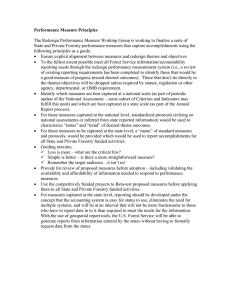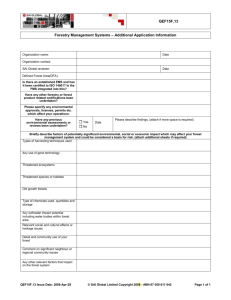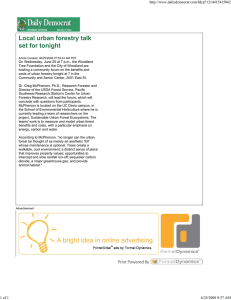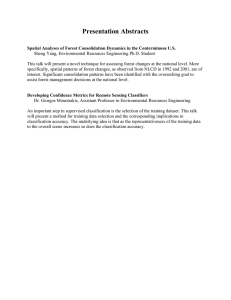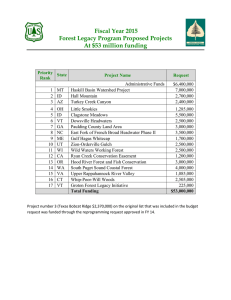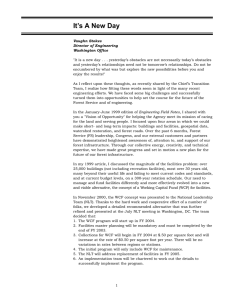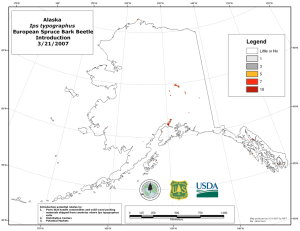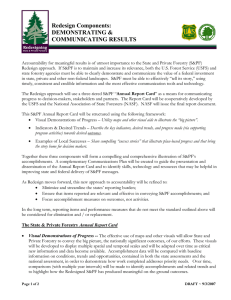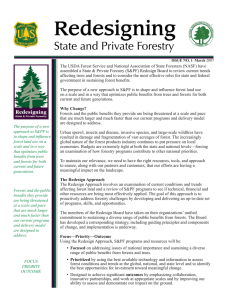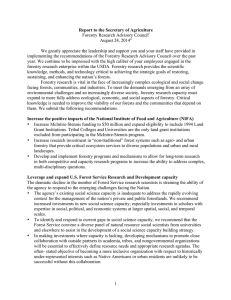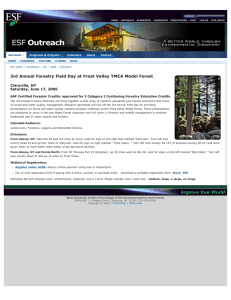Redesign Components: NATIONAL ASSESSMENT
advertisement
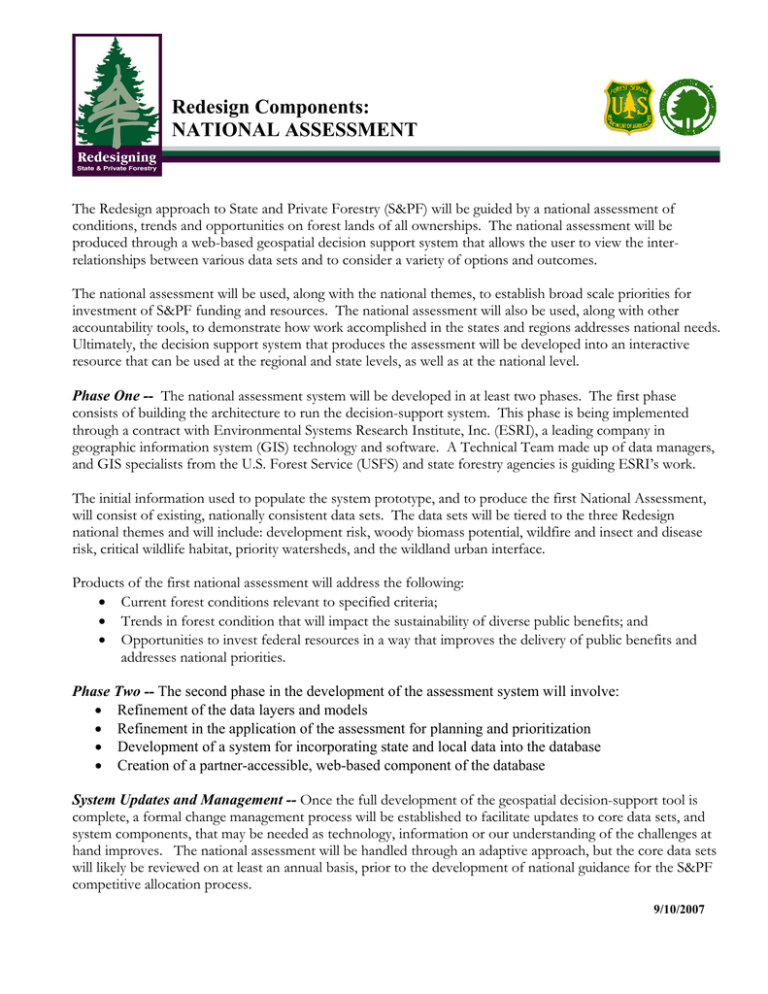
Redesign Components: NATIONAL ASSESSMENT The Redesign approach to State and Private Forestry (S&PF) will be guided by a national assessment of conditions, trends and opportunities on forest lands of all ownerships. The national assessment will be produced through a web-based geospatial decision support system that allows the user to view the interrelationships between various data sets and to consider a variety of options and outcomes. The national assessment will be used, along with the national themes, to establish broad scale priorities for investment of S&PF funding and resources. The national assessment will also be used, along with other accountability tools, to demonstrate how work accomplished in the states and regions addresses national needs. Ultimately, the decision support system that produces the assessment will be developed into an interactive resource that can be used at the regional and state levels, as well as at the national level. Phase One -- The national assessment system will be developed in at least two phases. The first phase consists of building the architecture to run the decision-support system. This phase is being implemented through a contract with Environmental Systems Research Institute, Inc. (ESRI), a leading company in geographic information system (GIS) technology and software. A Technical Team made up of data managers, and GIS specialists from the U.S. Forest Service (USFS) and state forestry agencies is guiding ESRI’s work. The initial information used to populate the system prototype, and to produce the first National Assessment, will consist of existing, nationally consistent data sets. The data sets will be tiered to the three Redesign national themes and will include: development risk, woody biomass potential, wildfire and insect and disease risk, critical wildlife habitat, priority watersheds, and the wildland urban interface. Products of the first national assessment will address the following: • Current forest conditions relevant to specified criteria; • Trends in forest condition that will impact the sustainability of diverse public benefits; and • Opportunities to invest federal resources in a way that improves the delivery of public benefits and addresses national priorities. Phase Two -- The second phase in the development of the assessment system will involve: • Refinement of the data layers and models • Refinement in the application of the assessment for planning and prioritization • Development of a system for incorporating state and local data into the database • Creation of a partner-accessible, web-based component of the database System Updates and Management -- Once the full development of the geospatial decision-support tool is complete, a formal change management process will be established to facilitate updates to core data sets, and system components, that may be needed as technology, information or our understanding of the challenges at hand improves. The national assessment will be handled through an adaptive approach, but the core data sets will likely be reviewed on at least an annual basis, prior to the development of national guidance for the S&PF competitive allocation process. 9/10/2007
